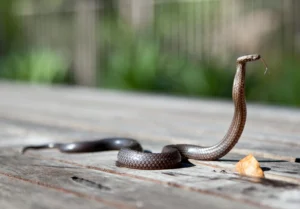In a strange experiment… Scientists succeed in reviving a pig’s brain an hour after its death.

Chinese scientists managed to revive a pig’s brain with functional activity about an hour after the animal’s death.
The aim of this strange experiment is to find out how doctors can restore brain functions for a patient who suffered a sudden cardiac arrest.
Unlike the traditional approach, creating liver tissues with “enhanced functions” in space!
A heart attack often leads to severe brain damage due to limited blood flow, which can cause serious, irreparable harm within minutes and is the leading cause of death.
Previous studies have indicated that the brain cannot withstand more than five to eight minutes of ischemia (meaning that parts of the body do not receive adequate blood flow), making the window for successful resuscitation very short and the chances of survival extremely low.
Scientists from Sun Yat-sen University in Guangzhou, China, suggest that their recent findings may provide a brief window for the successful resuscitation of a patient suffering from heart failure.
Using 17 lab-bred Tibetan piglets, the team found that the pigs whose livers were not subjected to ischemia showed much less brain damage than the group that was subjected to it.
Then the scientists attempted to integrate an intact liver into a life support system for a brain removed from an executed pig.
This life support system included an artificial heart and lungs to pump fluids through the brain.
And once again, when the pig liver was integrated into the system, the brain was able to resume functioning and remain active for several hours.
The team connected the brains to the system with the help of the liver for periods of 30, 50, 60, and 240 minutes.
50-minute periods showed the greatest success and kept the brain active for up to 6 hours.
Interestingly, the brains deprived of oxygen for 60 minutes could only recover for three hours before collapsing again.
The systems that do not contain a liver witnessed a return of electrical activity to the brain within half an hour before it declined over time.
And the liver-free systems were not able to maintain brain activity for the same period of time.
The results indicate that the liver plays a crucial role in preventing brain injury after cardiac arrest.
And while it is unlikely that this scenario will be repeated for humans, it helps scientists understand how long they might be able to maintain brain activity in patients with heart failure.




